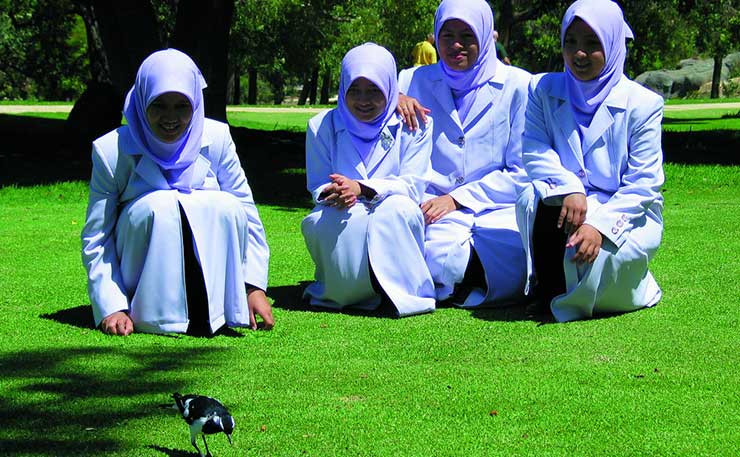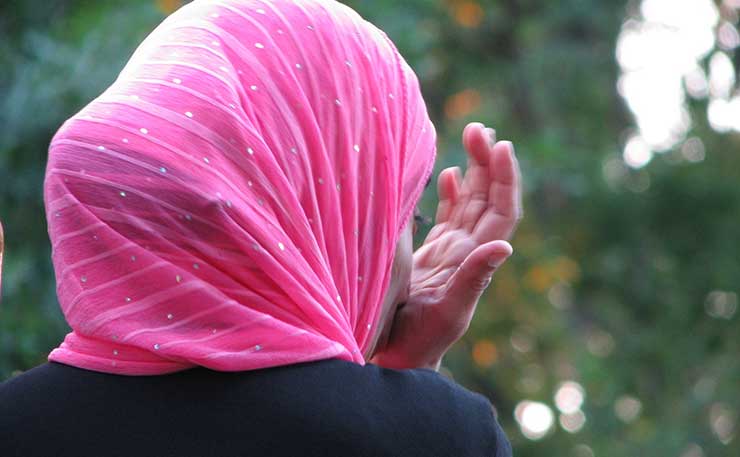In other words Muslim women, be reasonable, do it Overington’s way. Rawand Al-Hinti hits back.
Earlier this week, The Australian published this opinion piece by Caroline Overington, who described modest fashion as “grotesque” and linked it to misogyny, violence and terror. The only thing grotesque is the implication in Overington’s article that modest fashion is somehow linked to violence and terror.
Overington overlooks the impact of terror on Muslim women, and instead chooses to link them to the violence. Australian Muslim women have played a vital role in addressing and combating extremism, yet Muslim women wearing the veil are most at risk of Islamophobic abuse and attacks due to their visibility. And it is worth noting that Muslims are the greatest victims of terror – terror attacks have killed more Muslims than non-Muslims.
While the Australian government has allocated large sums of money to law enforcement and intelligence organisations to equip counter-terrorism measures, not enough funding has been put towards researching extremism. Terrorism academics have certainly found no link between Muslim women and terror, yet Overington feels qualified in making such a link.
Overington misguidedly reduced modest fashion to a clear binary of ‘modesty vs immodesty’, entirely dismissing the nuances of modest fashion – nuances shaped by race, age and class. Modest fashion is not anchored in morality; it is not holier-than-thou. Modesty is a manner of being rather than simply a manner of dress, and its boundaries are constantly being redefined by those who observe it. It is diverse in its expression and experience, and it is certainly observed by more than just veiled women. Therefore, the absence of modest fashion is not immodesty. Such a binary is polarising and reductive for women.

Modest fashion, as heralded by DFAT and the Faith Fashion Fusion exhibition, is a movement and a market. In fact, modest fashion is a billion-dollar international industry.
Former Prime Minister Tony Abbott also jumped on the bandwagon this week, criticising modest fashion as a contradiction to “Australian mainstream values”. The diversity so inherently apparent in Australian society is what defines Australian values. There is nothing un-Australian about making an informed choice about the way we dress. If we choose not to show an arm or a leg, we will not apologise for it.
Equally, if you choose to show that arm or that leg, that is your choice. Our cultural identity as Australians is built upon the ability to exercise free will. Assuming Muslim women are incapable of dressing freely is a gross misconception and takes away our agency.
What Muslim women choose to wear has become an international topic of debate, and fertile stomping ground for hate and racism. How can we address gender inequality when Muslim women are not afforded a voice in this debate and the narrative is being controlled by those with a superficial understanding of Islam and Muslim women? Those who are so concerned by the apparent oppression of Muslim women are also using their public platform to further oppress us.
Overington’s feminism is a contradiction: women can dress as they please, except Muslim women. No, Muslim women need saving from the apparently oppressive nature of their modest (read: grotesque) garb. Further peddling an ‘us vs them’ narrative, Overington seems fixated on an idea of “Australian womanhood” that conveniently writes out Muslim women from the fabric of our society.
Dear Caroline, Muslim women espouse Australian womanhood. We are change makers. We are lawyers, doctors, politicians, nurses, teachers, mothers and daughters. We are veiled and un-veiled. We are Australian in our own right. And assuming anything less of Muslim women is socially irresponsible.
You cannot champion the cause of women by further alienating other women; building yourself up by tearing down the choices of other women. In doing this, you are fostering patriarchy. I’m not interested in your feminism, which disregards the voice, experiences and struggles of an underrepresented minority. Muslim women have become political pawns, and the fact that another woman is contributing to our politicisation and demonisation is deplorable.
Overington and Abbott are not authoritative voices on Islam, Muslim women or feminism. While they seem to be so concerned with the supposed gender inequality of modest fashion, their comments are oppressive and divisive. They belittle the voices of Muslim women and they strip away the agency and autonomy of women who are battling prejudice every day in order to fashion their own identity.
It is not acceptable that in 2018, Muslim women are still being told what to wear and in what ways they need saving.
When will Muslim women become the definitive voice on issues that relate to and affect them?
When will we finally look beyond women’s dress choices, and instead look towards their intellect and achievements?
Donate To New Matilda
New Matilda is a small, independent media outlet. We survive through reader contributions, and never losing a lawsuit. If you got something from this article, giving something back helps us to continue speaking truth to power. Every little bit counts.




